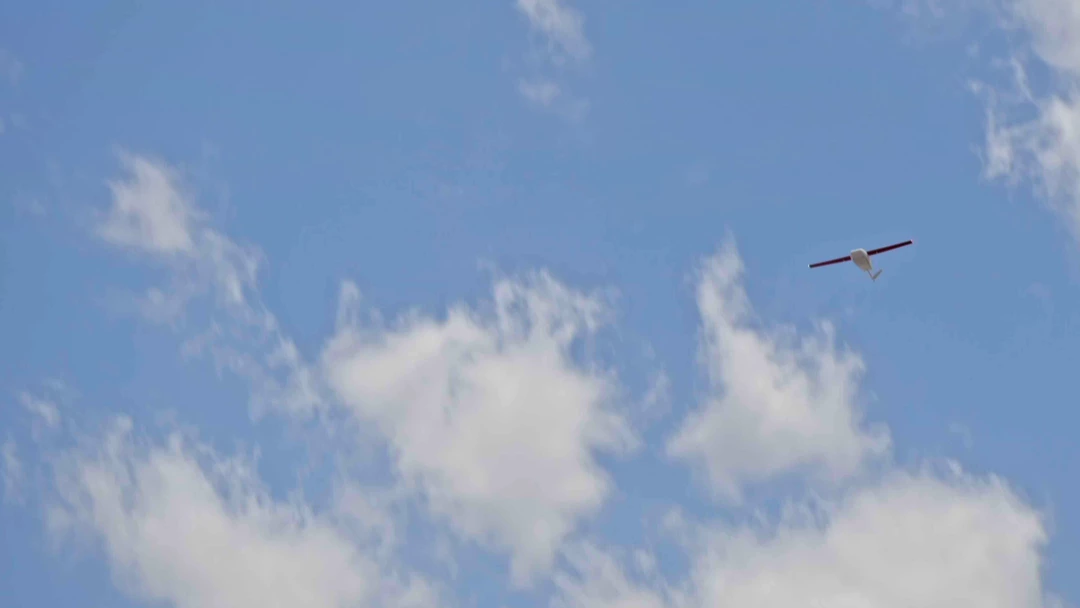The company is already in Dizraptor’s portfolio since May 10. New offerings are possible in the future

Video about Zipline
About the Company
Zipline designs, manufactures and operates drones to deliver vital medical products to everyone, no matter where they live. It has developed the first autonomous delivery system delivering vital medical supplies and operating at a national scale with revenue.
The company was founded in 2014 in Silicon Valley, U.S. Zipline drones have flown more than 8 million autonomous miles, delivered more than 1.5 million vaccine doses, units of blood, and other critical medications and made drops at more than 2,500 facilities serving 25 million people.
Zipline created Zip, a small autonomous airplane designed for a high level of safety, using many of the same approaches as commercial airliners. It can carry vaccines, medicine, or blood. Health workers at remote clinics and hospitals text an order for the medical products they need, on-demand. The box is attached to a small parachute that the drone then gently drops at the hospital or clinic. Zipline safely stores medical products at its Distribution Center, enabling immediate access to even the most sensitive or scarce items.
The company's goal, says co-founder and CEO Keller Rinaudo, is to put every person on Earth within a 15- to 30-minute delivery radius of any essential medical product they need, no matter where they live. Zipline currently operates in Rwanda and Ghana.
Since its founding in 2014, Zipline has gone from one base serving half of Rwanda to two bases serving the whole country. It also has launched four new bases in Ghana. The six facilities combined will deliver to hospitals serving over 20 million people. Besides governments, among Zipline’s customers there are pharmaceutical companies and large logistics networks.
Market Opportunities
ARK Invest, a management firm that invests in breakthrough technologies, believes that in the not-too-distant future drones will deliver packages, food, and even people quicker and more conveniently than ever before. Drones are likely to transform shopping behavior, reduce travel time, and save lives. Drones should reduce the cost to transport goods and people dramatically. While not yet commercialized, ARK Invest estimates that drone delivery platforms will generate nearly $50B in revenues, $14B in hardware sales, and $3B in mapping revenues by 2025. The cost of a 10-mile drone delivery with a piloted drone would cost about $8 but with a fully autonomous drone, this could be as low as 25 cents per delivery.
Unlike many companies that suffered during the pandemic, for Zipline there was an obvious opportunity to further accelerate its operations – not only delivering personal protective equipment but also COVID-19 vaccines. It partners with multiple vaccine manufacturers, including Pfizer and BioNTech and as of November 2021, more than 220,000 COVID-19 vaccine doses have been successfully distributed across Ghana by Zipline, the first company to do so through an autonomous aircraft at a national scale. Zipline plans to distribute millions more as supply becomes available.
The company’s currently working with the Federal Aviation Administration to move from operating under an emergency waiver – granted by regulators during the pandemic – to a full commercial operating certification. It would be one of the first drone delivery companies to receive such a certification.
In March 2021, Zipline announced a partnership with Toyota Tsusho Corporation, a member of the Toyota Group. The partnership with Toyota Tsusho will enable delivery options of pharmaceutical supplies and other critical medical supplies to remote areas, including islands, eventually expanding to other use-case scenarios. Someday, suggests the release, Zipline drones could be making deliveries throughout Japan.
In November 2021 Walmart and Zipline launched a commercial delivery service in Arkansas, through which customers can order thousands of health and wellness items.
Financials and Valuation
By 2025, the revenue from the drone market is estimated to rise to $50B, with the usage of drones in the health sector growing at the fastest rate, at about 27% per year. Zipline is a key player in the drone market for medical supplies, dominating Africa. The Middle East and Africa region account for about 30% of this market.
As of December 2021 Zipline has raised a total of $483M in funding over 8 rounds from 32 investors, including Techstars (invested in Twilio, DigitalOcean, Uber), Sequoia Capital (invested in NVIDIA, UiPath, Zoom, Apple), Andreessen Horowitz (invested in Affirm, Coinbase, Pinterest), Google Ventures (invested in Uber, DocuSign, HubSpot), Goldman Sachs (invested in Spotify, Tesla, Square). After a Series E investment round in June 2021, the company's valuation was $2.8B and its share price was $32.63.
Risks
The drone industry has grown so rapidly that regulators are unable to provide strong oversight. Tracking/monitoring technology could also help operators avoid breaking laws in the first place to ensure drones do not stray into controlled airspace. Regulation is developing, but is inconsistent between international jurisdictions, making the entire process complex and protracted.
A regulatory system that relied heavily on responsible behavior and/or the threat of sanctions could generate significant uncertainty for insurers. Effective collaboration and a consistent multinational approach will help enable the development of standard insurance wordings and cover for drone operations.
In addition to regulatory and legislative oversight, the aircraft drone delivery industry requires significant certainty for insurers. Insurance companies may become the main driving force behind the development of unmanned technologies. Drones are vulnerable to a range of cyberattacks. Drones for non-military use rely on unencrypted data links for command, control, and navigation. Realizing this, hackers have jammed, intercepted, and manipulated the drones’ controls.
Players in the drone delivery market are experiencing intense competition because of the growing demand for faster and safer transportation services. The prominent players include DHL, FedEx, Embention, and startups Skydio, Matternet, Vayu, Flirtey, and Swoop Aero. The increasing demand is anticipated to drive the emergence of new players.
Sources
Medical Drone Market Size, Growth - Forecast Analysis 2028, Fortune Business Insights, August 2021
